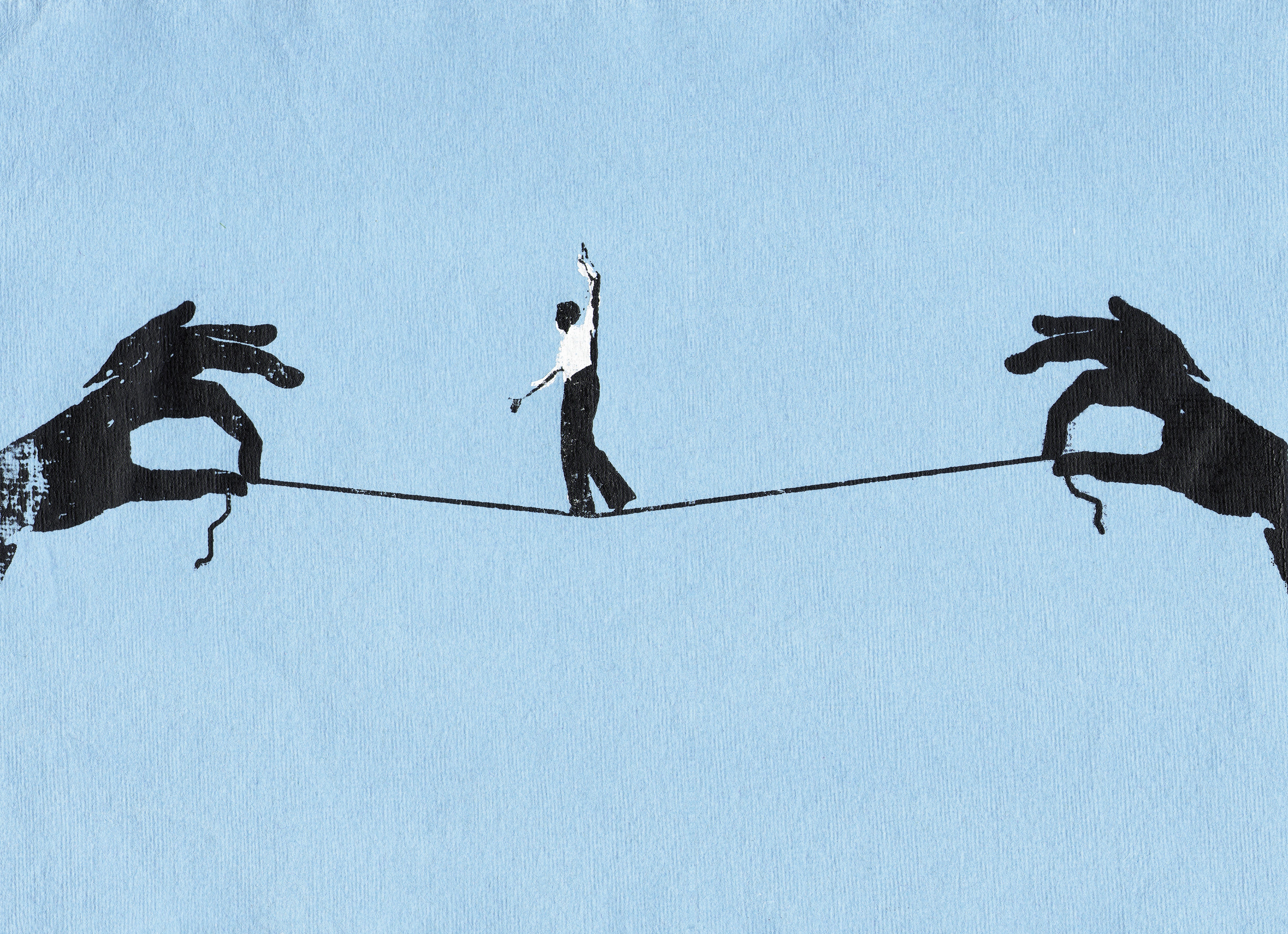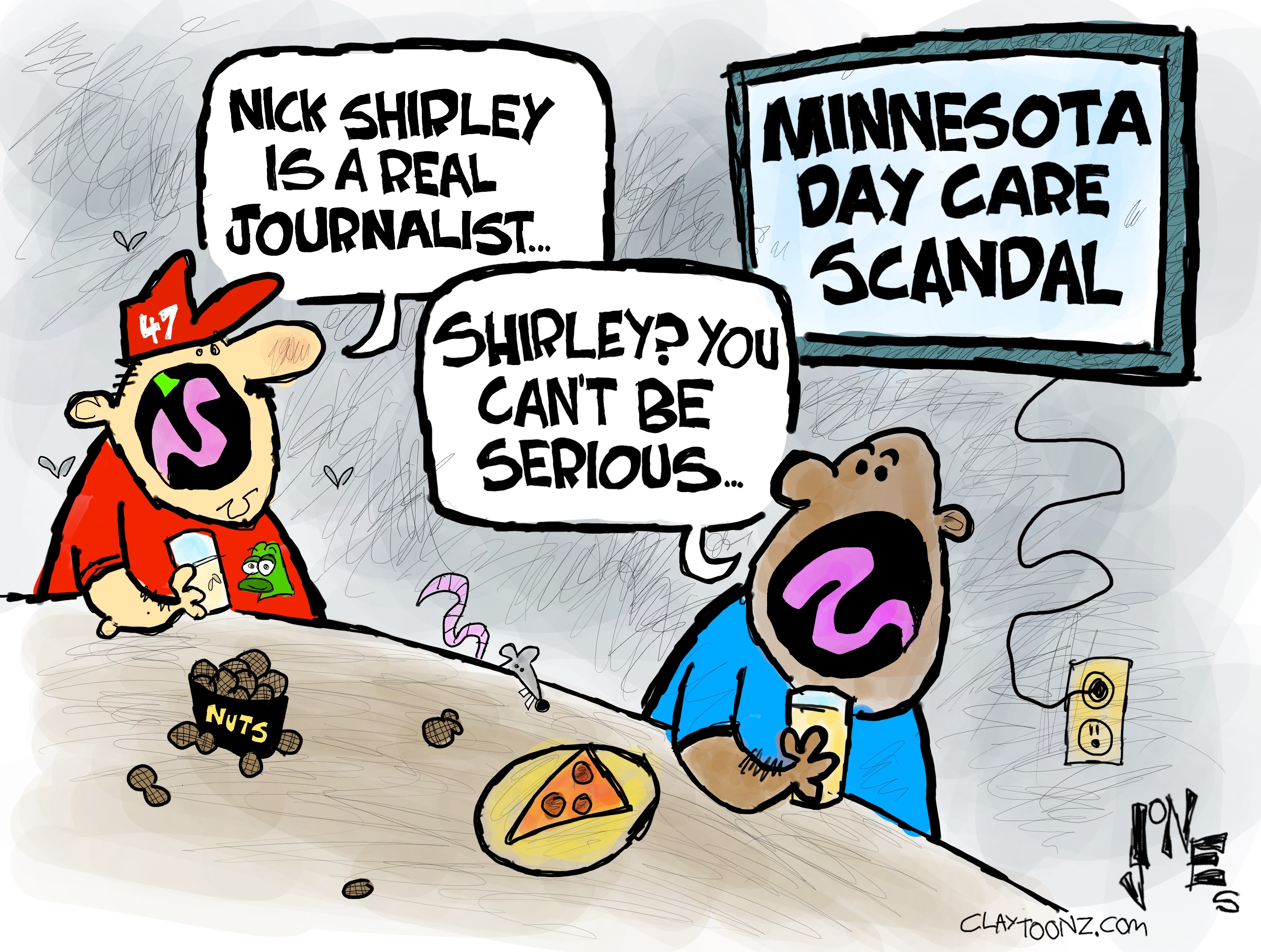What neoliberals get right
A defense of the center


I knew the exchange was growing heated when a left-wing critic of a recent column hauled out the heavy rhetorical artillery against me.
"You sound like a neoliberal."
Them's fighting words among progressives. For those unfamiliar with the term, a neoliberal is a centrist liberal in the mold of Bill Clinton or Tony Blair. But that's just the beginning. If the left is to be believed, the most powerful governments and NGOs in the world march in lock-step to neoliberal ideology, which shows unwavering deference to free markets and corporate profits, and icy indifference to the economic, social, and environmental damage they do to ordinary people and cultures around the globe.
The Week
Escape your echo chamber. Get the facts behind the news, plus analysis from multiple perspectives.

Sign up for The Week's Free Newsletters
From our morning news briefing to a weekly Good News Newsletter, get the best of The Week delivered directly to your inbox.
From our morning news briefing to a weekly Good News Newsletter, get the best of The Week delivered directly to your inbox.
That sounds bad — so bad, in fact, that hardly anyone on the left attempts to make a positive case for neoliberal policies these days. Even those who strongly support the ostensibly neoliberal candidacy of Hillary Clinton against socialist Bernie Sanders most often do so in conditional terms: "Yes, I feel the Bern, but Sanders can't possibly win, and even if he did, he'd never be able to pass his agenda through Congress. So we need to be sober and settle for Clintonian caution and triangulation."
That's a respectable argument, and one I've made myself. But centrist liberals can do better.
Let's begin with foundational principles. A neoliberal will: tend to be suspicious of utopianism; believe that modest reform and incremental change is usually the best we can reasonably hope for; distrust the simplifications of ideology; accept that the "slow boring of hard boards" (combining "passion" with "perspective") is the most responsible way to conduct oneself politically; and draw from history the lesson that efforts at radical change usually lead to unintended consequences as bad as or worse than the problems that inspired them.
Some might say this sounds like a form of conservatism. Temperamentally, this may be true. But it has very little in common with the libertarian-infused "movement" conservatism that first came to power with the Reagan "revolution," shifted further rightward with the Republican takeover of the House of Representatives in 1994, and leaped even more sharply right with the rise of the Tea Party in 2009.
A free daily email with the biggest news stories of the day – and the best features from TheWeek.com
It's more accurate to describe it as the outlook of the (now defunct) Democratic Leadership Council, the organization that led the push to bring the Democrats back toward the center after the leftward lurch that began with George McGovern's failed presidential campaign of 1972. The DLC's greatest political achievement was launching a run for the White House by its former chairman, Arkansas governor Bill Clinton, in 1992.
This history — the rise of the DLC, its repudiation of McGovernite liberalism, and the electoral success of Clinton's New Democrat centrism, which led to the signing of the North American Free Trade Agreement, a tough crime bill, and welfare reform — is the source of the anti-neoliberal anger so common among progressives today.
Lost in the recriminations is any sense of political and economic context: like the fact that in the 24 years between 1968 and 1992, the Democrats had held the White House for only four years; that this sole Democratic president had presided over high unemployment and double-digit interest rates and inflation; that all three were a distant bad memory by the time Reagan left office in early 1989 after five years of robust economic growth; that the fall of the Iron Curtain and dissolution of the Soviet Union seemed to vindicate Reagan's hawkish approach to foreign affairs; and that rates of violent crime were sky-high in the early 1990s (there were 2,605 murders in New York City in 1990, compared with 617 in 2014).
All of which means that the DLC-inspired shift to the center was politically essential for the Democratic Party. But it was also smart in policy terms. The American economy was sclerotic and overregulated in the 1970s. Drug-fueled urban violence did claim countless thousands of victims every year. Open-ended welfare payments did foster a culture of dependency that, yes, the Personal Responsibility and Work Opportunity Act of 1996 helped to weaken (while also contributing to a modest decline in the poverty rate).
These and other neoliberal policies were rooted in a compelling political and economic vision.
At its base is the conviction that it's crucially important for a modern nation to provide its citizens with a strong safety net — a limited number of social benefits and services for times of vulnerability (unemployment, poverty, illness and injury, old age). At the same time, the nation has an interest in discouraging the overreliance of citizens on these benefits and services. Both considerations — the need for revenue to fund these essential programs, and the need to minimize dependence on them — point to the importance of fostering robust economic growth that creates jobs, income, and wealth. And the best way to do that is to keep markets as open as possible.
A libertarian or far-right Republican treats the market as sacrosanct and the government as a parasite that contributes little of value. A socialist begins with the state and the substantial list of social goods it should provide and views with suspicion the economic activity that takes place in the private sector. A neoliberal differs from both in regarding the market and the government as potential and rightful collaborators in generating opportunity and providing protections that will elevate standards of living and improve overall quality of life for the greatest possible number of citizens.
The neoliberal Clinton administration did an admirable job of striking the right balance between deference to the market and empowerment of the state — all the while fending off relentless attacks from the right.
Does that mean it made no mistakes? Or that all of its policies had positive consequences? Of course not. The unnecessarily harsh mandatory jail sentences encouraged by the 1994 crime bill, in particular, along with locally based stop-and-frisk policing, not only drastically slashed the rate of violent crime but also contributed to a new problem — the mass incarceration of black men, as even Bill Clinton himself has recently admitted.
Welfare reform, meanwhile, could have done far more good, and inflicted much less pain, had the Republican-controlled Congress allocated more money for improvements to public transportation, job training, and childcare for single working mothers.
But those aren't arguments against neoliberalism. They're arguments in favor of making pragmatic adjustments to neoliberal policies — and against voting for Republicans.
In a future column, I will explain why even today centrist liberalism is preferable to Sanders-style socialism — and why Hillary Clinton's candidacy nonetheless gives me pause.
Damon Linker is a senior correspondent at TheWeek.com. He is also a former contributing editor at The New Republic and the author of The Theocons and The Religious Test.
-
 Political cartoons for January 3
Political cartoons for January 3Cartoons Saturday's political cartoons include citizen journalists, self-reflective AI, and Donald Trump's transparency
-
 Into the Woods: a ‘hypnotic’ production
Into the Woods: a ‘hypnotic’ productionThe Week Recommends Jordan Fein’s revival of the much-loved Stephen Sondheim musical is ‘sharp, propulsive and often very funny’
-
 ‘Let 2026 be a year of reckoning’
‘Let 2026 be a year of reckoning’Instant Opinion Opinion, comment and editorials of the day
-
 Bari Weiss’ ‘60 Minutes’ scandal is about more than one report
Bari Weiss’ ‘60 Minutes’ scandal is about more than one reportIN THE SPOTLIGHT By blocking an approved segment on a controversial prison holding US deportees in El Salvador, the editor-in-chief of CBS News has become the main story
-
 Has Zohran Mamdani shown the Democrats how to win again?
Has Zohran Mamdani shown the Democrats how to win again?Today’s Big Question New York City mayoral election touted as victory for left-wing populists but moderate centrist wins elsewhere present more complex path for Democratic Party
-
 Millions turn out for anti-Trump ‘No Kings’ rallies
Millions turn out for anti-Trump ‘No Kings’ ralliesSpeed Read An estimated 7 million people participated, 2 million more than at the first ‘No Kings’ protest in June
-
 Ghislaine Maxwell: angling for a Trump pardon
Ghislaine Maxwell: angling for a Trump pardonTalking Point Convicted sex trafficker's testimony could shed new light on president's links to Jeffrey Epstein
-
 The last words and final moments of 40 presidents
The last words and final moments of 40 presidentsThe Explainer Some are eloquent quotes worthy of the holders of the highest office in the nation, and others... aren't
-
 The JFK files: the truth at last?
The JFK files: the truth at last?In The Spotlight More than 64,000 previously classified documents relating the 1963 assassination of John F. Kennedy have been released by the Trump administration
-
 'Seriously, not literally': how should the world take Donald Trump?
'Seriously, not literally': how should the world take Donald Trump?Today's big question White House rhetoric and reality look likely to become increasingly blurred
-
 Will Trump's 'madman' strategy pay off?
Will Trump's 'madman' strategy pay off?Today's Big Question Incoming US president likes to seem unpredictable but, this time round, world leaders could be wise to his playbook
